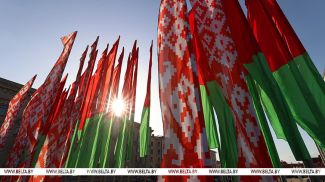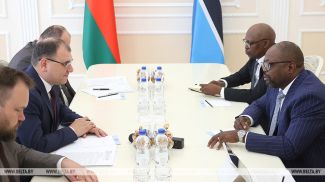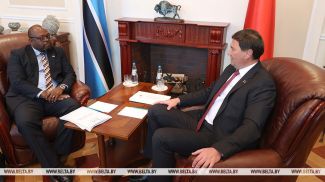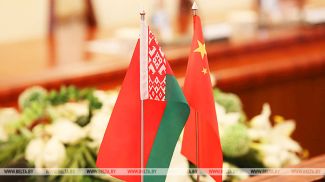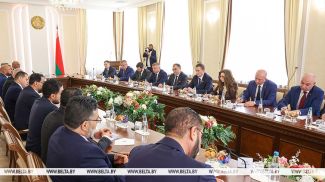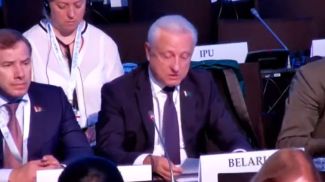MINSK, 23 February (BelTA) – The West's attempts to play the role of an international warden look like a way to shift attention away from its own problems. Belarusian Minister of Foreign Affairs Vladimir Makei made the statement in his speech during the 46th session of the UN Human Rights Council in Geneva, Switzerland on 23 February, BelTA has learned.
According to Vladimir Makei, Belarusians can state with pride that their cities are some of the world's safest ones, that all the citizens in the country are granted employment opportunities, the right to pensions, to free education, and to one of the world's most affordable and effective healthcare systems.
Vladimir Makei remarked: “Belarus has managed to retain all the social obligations of the state even at the height of the coronavirus pandemic despite skepticism and criticism from many Western countries. At the same time their policy of total isolation, restrictive measures, and blatant protectionism in the period revealed systemic social, economic, and public problems and resulted in a mass violation of human rights with regard to their own citizens.”
Vladimir Makei pointed out that street riots in Belgium, Germany, Spain, Netherlands, Poland, and France, which are accompanied by aggressiveness of the protesters and the reciprocal violence of the police, are reported by mass media all the time. “This is why attempts of Western countries to assume the role of an international warden and a global mentor in matters concerning the realization of human rights in other countries look like a clever tactic designed to draw attention away from their own problems,” the official stated.
Vladimir Makei remarked that it would take hours to recount violations of commitments in the sphere of human rights by Poland, Lithuania, Czechia, and many other European countries. “Why do these countries assume they can blame and accuse other states? Why do they regularly submit initiatives to the Human Rights Council and propose looking into problems anywhere else but themselves? Does the UN respect the European Union's ‘reverent' attitude to rights of migrants? The state of national minorities in Latvia, the deportation of representatives of the Romani people in France, neo-Nazis in Estonia, politically motivated persecution of reporters and Russian-speaking public activists in Lithuania, and so on. Is nobody in the United Nations Organization concerned about it? Why doesn't the UN Human Rights Council look into these issues?” the diplomat wondered.
In his words, one can assume that UN resources are limited and it is impossible to take care of all the countries simultaneously. Why then is it necessary to invest heavily in country mechanisms that do not work? “The answer is simple: Western donors can always find money for their pet projects as well as resources to lobby the resolutions that benefit their political goals in the UN Human Rights Council,” Vladimir Makei stressed. “We suggest restoring the geographical and political balance of the Human Rights Council and the UN as well as the essence of the organization's mandate, the fair and equal discussion about problems with human rights all over the world.”
It is the unbiased approach that the Belarusian side expects from the UN Human Rights Council, which is supposed to objectively consider problems in all countries without an exception. “Only then will such a fair attitude allow us to regain trust in the work of the Human Rights Council and will help improve the human rights situation across the globe,” Vladimir Makei concluded.




